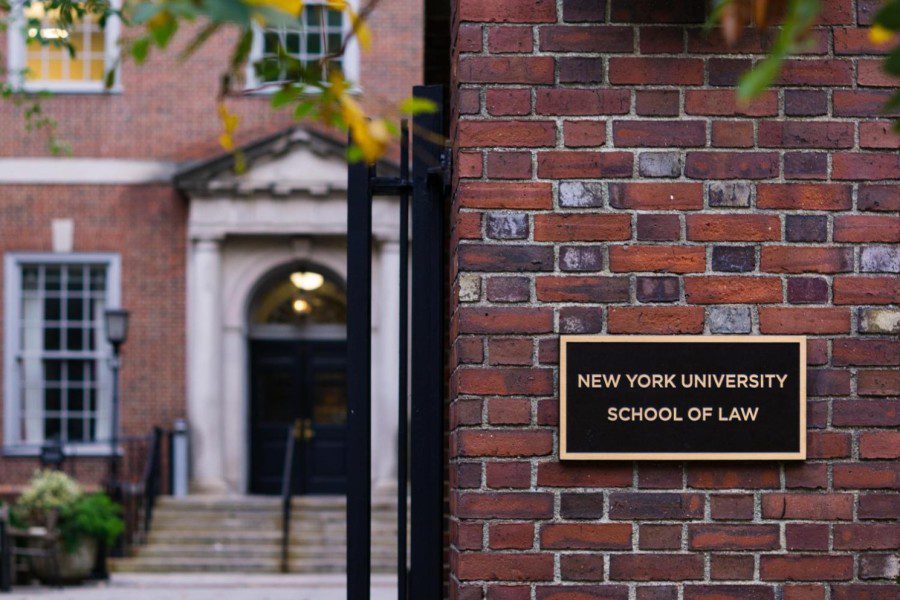NYU Law withdraws from US News rankings, following other top schools
Fourteen of the highest-ranking law schools in the country announced they would not participate from the U.S. News & World Report law school rankings due to concerns over its methodology. NYU followed suit on Monday.
File photo: The entrance of the Vanderbilt Hall of the NYU School of Law. (Kevin Wu for WSN)
December 6, 2022
NYU Law is the latest of the top 14 law schools in the country, collectively known as the T14, to boycott the U.S. News & World Report law school rankings. The school, which is ranked No. 7 nationally, has left the rankings due to concerns over U.S. News’ methodology. After NYU’s departure, three schools remain in the rankings — two of which have announced that they will not leave.
Troy McKenzie, NYU Law’s dean, said that the report’s methodology discourages students from pursuing careers in public interest law. He added that the rankings can create an inaccurate view of career opportunities available during and after law school.
“Prospective law students need accurate information as they consider which school best fits their goals in pursuing a legal education,” McKenzie wrote in a letter to the NYU Law community. “At one time, U.S. News may have provided information that could not be found elsewhere. That has changed. “
According to McKenzie, the rankings categorize graduates in the law school’s public interest fellowships as “marginally employed” — a category of employment that typically indicates a low standard of living. The school offers multiple public interest fellowships and scholarship programs for students, as well as student loan relief paid for by NYU Law, which the dean said is not considered in designating the school’s rank.
U.S. News disagreed with that perspective, according to a statement from a spokesperson for the company to the New York Daily News. The spokesperson said that the rankings factor in debt and focus on guiding students who want to pursue jobs outside of public service law because “the majority of students are looking for jobs in the open market.”
Other universities have cited similar concerns, adding that they think the rankings give metrics like grades and test scores too much weight. Some have said the rankings encourage universities to give students merit-based rather than need-based financial aid. U.S. News has confirmed that it will continue to rank universities that drop out of the report using publicly available data.
Law school administrators at some schools that are lower in the rankings have said that the rankings can be useful for marketing themselves to applicants. No schools that are ranked below 49 have joined the boycott.
Some experts have said that lower-ranking universities cannot afford to leave the rankings, regardless of whether they agree with U.S. News’ process, explaining that the schools that left did so to pressure U.S. News to alter its methodology.
McKenzie said he hopes U.S. News will change the metrics it uses in its law school rankings in the future.
“NYU Law values its long history of redefining legal education and ensuring our graduates are practice-ready for today’s world,” McKenzie said. “Our commitments to public service and educational accessibility remain among our greatest priorities.”
Contact Carmo Moniz at [email protected].



























































































































































